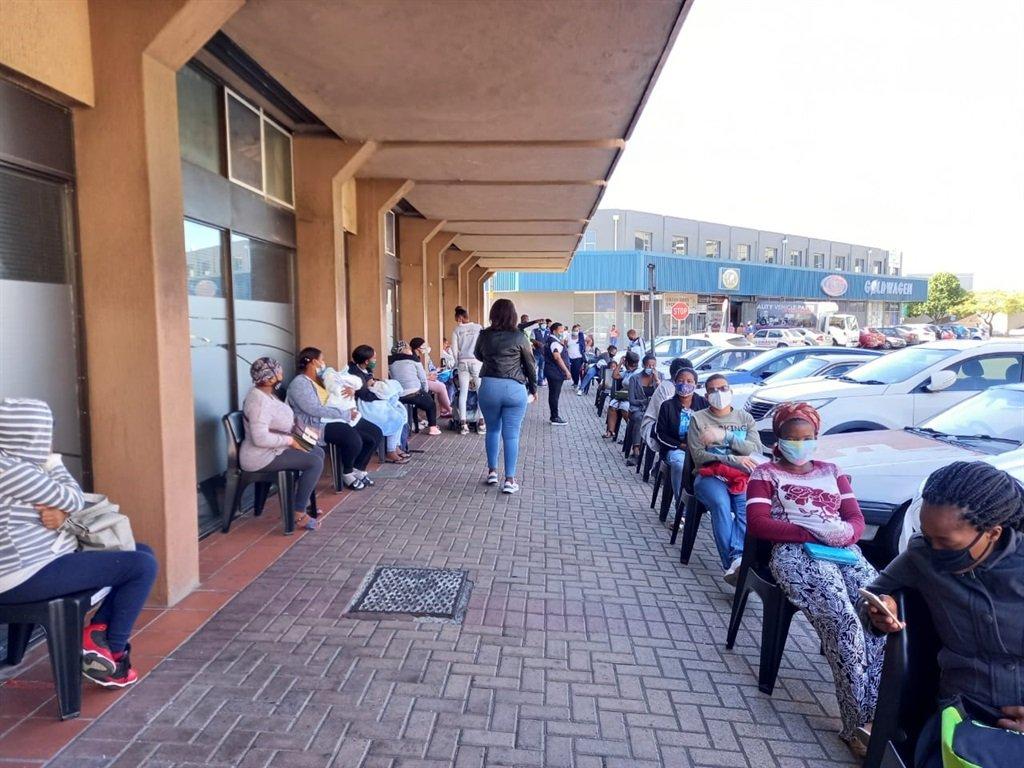Africa-Press – South-Africa. New regulations require beneficiaries of the R350 Social Relief of Distress (SRD) grant not to “unreasonably refuse” to accept employment or educational opportunities.
In addition to this, beneficiaries would have to confirm every three months whether they are still in need of the R350 grant.
If they fail to do so, the grant won’t be paid.
On Tuesday, details of several new regulations to manage the payment of the R350 grant were shared with the Select Committee on Health and Social Services.
Basic income grant could drive South Africans to emigrate, study says
Social Development Minister Lindiwe Zulu and officials from the SA Social Security Agency (Sassa) presented their plans and challenges in administering the grant.
Briefing lawmakers in the National Council of Provinces, the Department of Social Development’s chief director, Brenton van Vrede, said:
The Department of Public Works and Infrastructure’s Expanded Public Works Programme provides poverty and income relief through temporary work for the unemployed.
Another new requirement inserted into the regulations requires applicants to confirm whether they still need the grant every three months.
“This is to enable Sassa to pick up changes to the applicant/beneficiary status, which may be missed through only data checks. It will encourage more active engagement between the applicant/beneficiary and Sassa using digital platforms. It defaults the client to ‘not requiring the grant’ if they do not re-engage every three months,” he said.
Following President Cyril Ramaphosa’s announcement in his State of the Nation Address that the SRD grant will be extended until March 2023, regulations had to be changed.
Subsequent to the lifting of the State of National Disaster in March, the department had to develop new regulations under the Social Assistance Act instead of the Disaster Management Act.
“We were aware that the State of Disaster would be lifted soon, [so] the third iteration involved us to shift from the Disaster Management Act to social assistance framework. By implication, because this was within in a new legislative framework and essentially a new legislative framework, this does require that people must re-apply for the grant.
“Because of the limited budget, we could target 10 million people, and in the previous iteration, we reached about 11 million people,” Van Vrede said.
Earlier this month, Zulu made a final proposal to raise the means test for the SRD grant to R624 a month.
This means that anyone with a monthly income of more than R624 a month – which is the food poverty line – will not qualify for the grant. The maximum income level to qualify was set at R350 from 1 April, which caused large numbers of applicants to be disqualified.
The department’s deputy director-general, Brenda Sibeko, said it is proposing the grant be continued while legislative matters are ironed out.
“This should continue beyond the current financial year while we get the final policy and legislative matters in place. We are working on how to extend this current SRD grant and then, going forward, once the legislation is done, implement basic income support,” she said.
Calls to increase social relief grant to R1 500 per month by taxing the rich
Meanwhile, Sassa had, by 11 August, received 2 455 607 appeals in relation to SRD-R350 grant declines.
In April, 769 399 applications were declined, 401 170 in May, and 1 285 038 in June.
“The processes governing the consideration of an appeal for SRD-R350 is that the Independent Tribunal would, when considering an appeal, reassess the decision of Sassa against the relevant and updated information at its disposal, provided that such information was relevant to the applicant’s status during the month of assessment to which the specific appeal relates,” Van Vrede said.
The tribunal is required to adjudicate these appeals within a period of 90 days from the date of receipt thereof.
For More News And Analysis About South-Africa Follow Africa-Press






